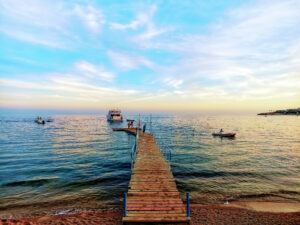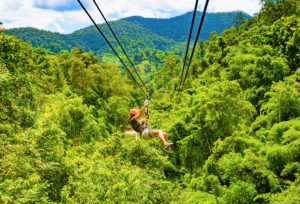Let’s face it there’s an endless list of myths around travel that many of us believe to be true. But just because we hear them time and time again doesn’t mean that there are accurate. So, we think it’s about time we set the record straight and put those common travel beliefs to rest.
1. Sangria is the chosen drink in Spain
When us Brits go to Spain we think it’s almost gospel to drink sangria. Nothing says you’re in Spain like the mixture of wine, juice, brandy, and fruit pieces served in a giant jug, agreed? But this myth couldn’t be further from the truth as the Spanish much prefer a glass of red wine, and sangria is often seen as overpriced. Tinto de verano, a mixture of red wine and lemonade served in a tall glass with plenty of ice, is a popular choice among the Spanish.
2. Stick to bottled water in foreign countries
Although in some countries it’s not advisable to drink tap water as it can lead to an upset tummy, this isn’t the case everywhere and in some places drinking the local tap water is perfectly safe. Drinking the tap water in Italy and Spain, unless they are signs telling you not to, is harmless. But if you’re in any doubt about the local supply, stick to bottled water as it is extremely cheap in most local supermarkets.
3. Your souvenirs were made locally
The question is how ‘authentic’ are your goods? We often stock up on souvenirs when we go on holiday as we live by the concept that we won’t find locally made goods like those abroad back at home. Sorry to be the bearer of bad news, but unless you’re in China more often than not the keepsakes you bring home are made elsewhere.
4. English is spoken worldwide
I’m sure you’ve heard time and time again that English is a universal language. Yes, it is undeniably the most spoken language around the world, but you may be surprised at how many people can’t speak English.
If you’re going to somewhere like Asia or China it is advisable that you learn the language basics as you will be able to communicate much more effectively – particularly in the case of an emergency when a language barrier could become a problem.
5. Guidebooks are the most helpful source of information
For as long as most of us can remember we have always been told to refer to a guidebook when travelling, but unless you’re a culture vulture who loves sightseeing and historical architecture a guidebook isn’t always the ideal go-to travel guide. Besides, with constant changes and developments in the world of tourism guidebooks don’t always offer up-to-date information such as current prices or if they have been any closures.
In fact, travel blogs are a much better source of information and tend to offer a less informal and more truthful insight into a destination, for instance, listing the best restaurants and bars.
6. All locals will rip you off
Trust no one is what we are usually told when we travel, but how much truth is there in this statement? The answer is not a lot! Yes, there’s no denying it you have to have your wits about you when you travel – and by your wits we mean keeping expensive belongings tucked away and doing the required research. However, just because they are a minority of locals who make money out of scamming tourists this doesn’t mean that the country’s population wants to do the same. In fact, there are plenty of locals who won’t take advantage of you, and will be happy to help without a charge.
7. Get to the tourist spots early to avoid crowds
When you go on holiday you’re usually told to get to those tourist spots early – especially if you can’t bear the thought of being pushed and shoved by a bunch of photo-thirsty tourists trying to capture that perfect holiday snap. Don’t think you’re the only one with this genius idea though as it is written in every guide book imaginable. So, don’t be shocked if that not-so-busy landmark is overrun by tourists after setting your alarm clock two hours early.
Why not find out if any of these myths still stand on your next summer holiday?






